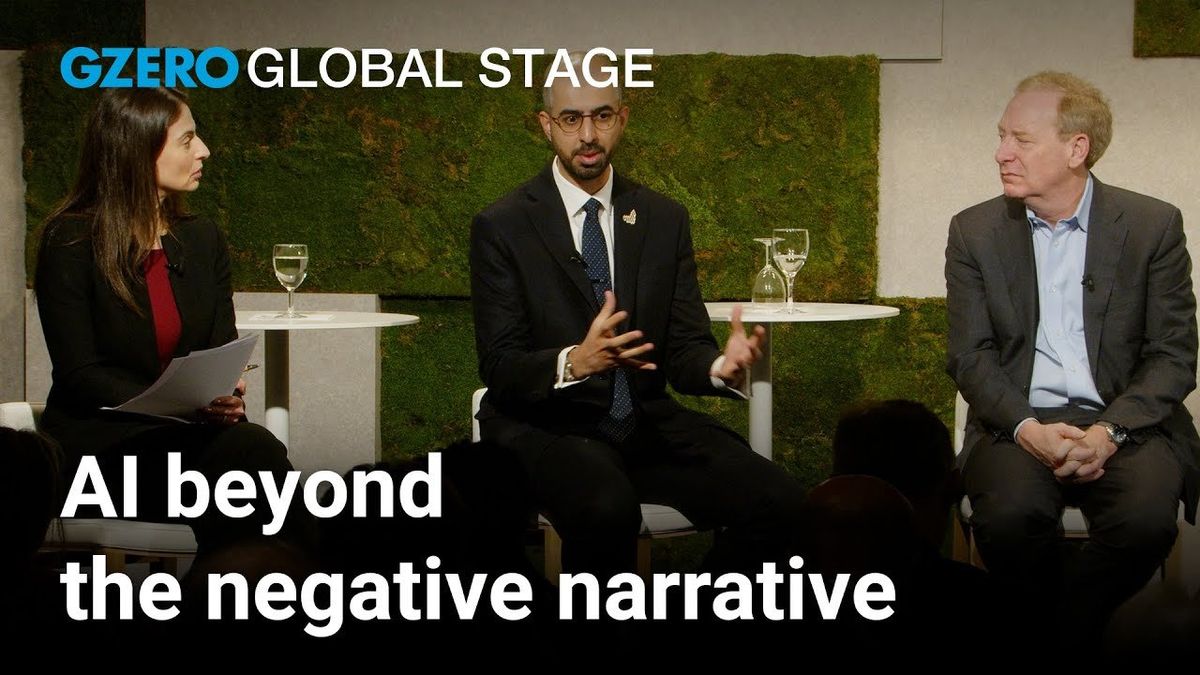AI comes with a lot of stigma. Popular storylines in books and movies have trained us to see artificial intelligence as a bad actor that can take control over humanity and destroy us, says Omar Sultan al Olama, the UAE's Minister of State for Artificial Intelligence.
Minister al Olama, speaking in a GZERO Global Stage discussion from the 2024 World Economic Forum in Davos, Switzerland, highlights that in the UAE, AI development isn't just focused on productivity and economic gains, but on its potential to improve quality of life. One way to flip the script on AI as simply a scary tech straight out of a sci-fi thriller? Create more content that sheds light on AI's upsides, says al Olama.
The conversation was part of the Global Stage series, produced by GZERO in partnership with Microsoft. These discussions convene heads of state, business leaders, technology experts from around the world for critical debate about the geopolitical and technology trends shaping our world.
Watch the full conversation here: How is the world tackling AI, Davos' hottest topic?
- Episode 7: How AI is changing our economy ›
- Azeem Azhar explores the future of AI ›
- Staving off "the dark side" of artificial intelligence: UN Deputy Secretary-General Amina Mohammed ›
- How AI can be used in public policy: Anne Witkowsky ›
- Will consumers ever trust AI? Regulations and guardrails are key ›
- Podcast: Talking AI: Sociologist Zeynep Tufekci explains what's missing in the conversation ›
- Using AI to solve global challenges like food security - GZERO Media ›

















